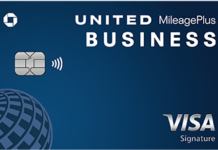NOTICE: This post references card features that have changed, expired, or are not currently available
Last week, United stunned mile collectors with news of massive inflation in their award chart. This affects United awards booked on or after February 1, 2014. Most economy and domestic awards were left alone, but most international business and first class award prices increased. Hardest hit were international awards on United partners. For example, today one can book a round trip Saver award between the US and Asia in first class for between 135,000 and 160,000 miles (depending on your destination). Beginning in February, the same award will cost between 220,000 and 280,000 miles (if the award includes any partner segments in first class).
Needless to say, we were not happy campers:
- One Mile at a Time declared ” it’s a sad day for the mileage world“.
- View from the Wing said “I’m issuing a sell recommendation on United miles.”
- The Points Guy called this “a bold move to become the world’s most “flyer un-friendly” airline.”
- Travel Blogger Buzz ranted “Forget your aspirational trip ways, get used to flying coach again, the good old days are about over.”
- And, a top United Exec “suggested calling United MileagePlus miles “Stardust” since United is part of the Star Alliance and their miles will soon be worth little more than dust.” (OK, that didn’t happen. It was actually written by me in my fake interview post).
Why it hurts
United’s MileagePlus program has been the favorite go-to program for many mile collectors for a number of reasons:
- Miles are easy to get. Thanks largely to Chase’s Ultimate Rewards program (which lets you transfer points to United 1 to 1), it is easy to collect United miles quickly through credit card signup offers, credit card category bonuses, and online shopping (via the Ultimate Rewards Mall).
- Star Alliance awards. United is part of the Star Alliance, which is the largest and arguably best of the airline alliances. The alliance gives United MileagePlus members excellent award availability and access to some of the best airlines in the world.
- Flexible routing rules. On international round-trip awards (or round-trips including Hawaii), United allows a stop-over and up to two open jaws. This makes it possible to extend your trip to multiple destinations without increasing the cost of your award.
- One-way awards. United allows one-way awards at half the price of round trips. This makes it possible to do things like book a trip one-way with United and the other way with another currency (cash, ThankYou points, AA miles, etc.).
- Decent online search engine. United’s website does a reasonably good job of showing award availability not just for United flights, but for partner flights in general. This makes booking awards much easier than with airlines that show just their own flights or their own plus just a few partners.
- No fuel surcharges. Unlike many other airlines, United doesn’t charge fuel surcharges for award tickets. This can mean a huge savings. In fact, with some airlines and on some routes (hello British Airways), fuel surcharges on an award can cost as much as a paid discount fare!
All of the above factors that have made United miles so valuable are still in place. However, certain types of awards will now cost significantly more than before.
Who it hurts
What is your motivation for collecting miles? Some simply enjoy the game – the more miles you have, the bigger your score. Many (most?) collect miles to save money on travel. And, some are primarily motivated by the desire for luxury travel. United’s devaluation doesn’t hurt people in the first two camps, but it is a blow to those hoping to use their United miles for best-in-class international luxury travel. Beginning in February, some first class awards will be almost 90% more expensive than they are today.
The game goes on
As I said above, if your goal is to use miles for cheap travel, then nothing has really changed. Most economy awards using United miles will be priced the same as they were before. In fact, one could argue that your United miles are now safer from devaluation because United is unlikely to inflate award prices again anytime soon.
For those seeking the best in luxury travel, the game continues there as well. There are alternatives to United, of course, such as US Airways (for now) and Avianca miles for Star Alliance flights; British Airways and American Airlines miles for One World flights; Alaska Airlines miles for flights on several partners; and more.
However, even if all alternatives to United somehow disappeared, this devaluation would still not be the end of the world for mile collectors. Yes, some award prices will be much higher than before and much higher than competing programs, but when looked at objectively, they’re not completely unreasonable. For example, round trip partner awards between the US and South Asia will increase from 140,000 miles to 260,000 miles. That’s almost double. However, if you look at it purely as a function of the value per mile, it’s not as terrible as it appears. I priced out first class flights from Detroit to Bangkok across a variety of dates and found a range from $13,000 to $16,000. Even at the “cheap” $13,000 price, a 260,000 mile award gives you 5 cents per mile value. So, while 260,000 miles sounds like an outrageous price to pay to those of us used to smaller numbers, it’s still far better than paying in cash. Also, consider how much a ticket like this would cost with a fixed value rewards program that offers 1 cent per point value. Such a program would require at least 1.3 million points for this same flight! Sure, those programs advertise that you can fly any airline at any time with no blackout dates, but surely not many people have enough of those types of points to fly international first class!
My point of view
Personally, the desire for luxury travel is a big motivator. I love that with good international business and first class flights, the journey itself becomes a significant and positive part of the adventure rather than just a means to an end. And so, yes, this turn of events hurts. Like many others, I’ll try to take advantage of some luxury awards now while they’re still obtainable under the current award chart. It just makes sense to try to get as much value from your miles as possible. That said, I don’t believe for a second that this game is anywhere near over. Instead, the game is changing. It’s always changing. And, frankly, that’s what keeps things interesting.





Could this be more fallout from blogs like this one? Hmmm.
[…] The game goes on, Stardust and all […]
@FM u r being way too kind to the knuckleheads who thought up these changes…….
I do wonder if the stress turmoil at Chase is also driving these changes…………UR is being decapitated in front of our eyes and every time you see another fine from the the US Government remember that the frequent flyer program is going to pay uncle sugar for the sin……….
So if you want to fly Lufthansa there really is no choice but to head to Barclay’s……
And if you want to fly Singapore then you head out the door to AMEX………….
How many times do you have to have her tell you NO to the Prom before you ask another?
It’s just not rocket science…………..
justSaying: I don’t think that Chase is driving these changes.
Perhaps not driving but a big influencer……..you can’t go the frequent flyer party without a bank on your arm…….and if they are grounded somewhat it does slow things down……..we can always hope this starts a true trade war on the international seat………..
FrequentMiler – My point is exactly the opposite that its not good value. Unless, I am on business trip and my company was paying for it, I would not forgo 5K+ in cash equivalent to get that flight. In the past the lost cash opportunity was around 2-2.5K which I (and many others) would not mind for a 10-15K flight but now the value proposition is just not there. Additionally, the points flight are not the same as cash flights since you dont get points, etc. Honestly, would you give up 5K in cash (or cash equivalent travel points) to accumulate united points to make the 12-13K valued flight?
saaru: I’ll try one more time here. I wasn’t arguing that this wasn’t a bad devaluation. It was. This was a mental exercise, imagining a world where all other mile options went away (or devalued even worse). The question was, should one still collect miles? It was not meant to be advice. I wasn’t trying to say that it is a good idea to decide to go for that particular first class trip, just that if one decides to do so, United miles will still get the trip for 6 cents per mile. Also, I don’t think that it makes sense to assume that miles are collected 1.1 mile per dollar (via Freedom & checking account, I presume). There are many options to earn United miles through signup bonuses, category bonuses, and shopping portals. If the question was: should I put my non-category spend on my Arrival card or my Freedom card, then yes for most people the answer should be the Arrival card. I think that was already good advice, and is even better advice after the deval. Honestly, I don’t think that you and I disagree here, I just think that I’m having trouble conveying the point of the mental exercise.
I agree stardust sounds too glamorous. It should be milageminus points ….. NEW motto: we are united (except for our partners, who cost more points because they offer better, first class, service than us)
Who can argue with that?
wise2u: ha ha. Great motto 🙂
“However, if you look at it purely as a function of the value per mile, it’s not as terrible as it appears”.
The devaluation is terrible and to say otherwise is plain wrong. Assuming you earned 1.1 miles per dollar spent(not counting signup bonuses)it would required close to 237 thousand of spend(Detroit to Bangkok e.g. you cited). If that amount of spending was done on Barclays Arrival card for example one would receive 5200 of cash travel benefits. Are you really recommending that one forgoes 5200 in cash travel to earn those united miles? Besides the 5200 in cash travel benefits one can use it to gain status on the airlines and additional miles while the miles redemption would not get you anything. I really admire all the great posts you have especially on manufactured spend and your math skills but this post leaves me scratching my head.
saaru: The text that you quoted was written to show that miles can be a good value even when looking at the worst of the new award chart. It’s a hypothetical example in which I tried to prove my point by looking at the extreme. If your goal is to fly first class Detroit to Bangkok and, in the hypothetical case where there were no other good options, then United miles do present very good value over cash. Would you rather pay $13000 or 260,000 miles? I’m not saying that it is wise to seek that first class flight, just that if you’re set on taking that flight then miles are still the way to go. With the Arrival card you would have to spend $650,000 to get the 1.3 million points needed for that flight (then you would get 10% back: 130K back).
I have to second the thought that Stardust sounds positive. If it helps you cope with devaluation though, I wont fault you for using it 🙂
I was about to transfer to UA but kept thinking about it and am so glad I didn’t. Am so glad I am diversified and have miles with AA, AV, UA, BA and US with an average 150k in each ( AV and UA ~80k). In addition over 150k UR points. I have never heard of a Chase devaluation but that does not mean it wont happen. What should people with banked UR points do?
What do you recommend (Most of points thru appl. and MS that is alive and kicking !)
Same thoughts. We feel that it is a sad news before we know how good it was in the past.
For new United mile collectors, they may still think it is an amazing program.
For us looking back 20 years from now, we may think the new United award chart is awesome, because this depreciation will just continue. 🙂
Cheers!
Green Espirit: Good point!
.
Jorge: Personally I still highly value the ability to move UR points to wherever they are needed (within the limits of which transfer partners they have). I would keep my points as UR until they can be used elsewhere. And, who knows, it’s possible that they’ll add additional transfer partners in the future.
The bigger question is what happens to the UR program. I’m happy to use my stash of UA miles for domestic travel, since there’s plenty of saver availability there, unlike Skymiles. But WTF do I do with my UR points now? They are a Hyatt devaluation away from being MR points.
DBest: Well, there are still plenty of good United redemptions. Aside from that, you can get great value from UR points transferred to:
Korean Air (if you have a fax machine)
BA (for short non-stop partner flights)
Virgin Atlantic (for flights to London, but more expensive for return flights)
Amtrak (redeem for bedroom and all meals are included)
Hyatt (as you said, until devaluation)
IHG (just kidding. don’t transfer here)
@FM — it’s true about MS, but that’s work and takes time and effort. People value those points more than an easy one-time bonus, and few can do as much MS with UR points now that OD is out of the picture. United mile chart always had a pretty high premium for higher cabins (compared to USAir) so it was never an easy decision.
..
I personally still value UA miles a lot since international coach can be expensive and I want to travel for the destination. The flexible routing rules make it all worth to me even now, over say USAir / Delta, and even AA miles. If the schedule falls into place perfectly and I can take advantage of the AA distance award, I’d do that instead for premium.
Miles for F aren’t worth 5 cents per mile. They are worth what you’d pay for the ticket divided by the total amount of miles. Otherwise, there would be no award availability as all the tickets would be sold for $13K.
Bikeguy: That’s not how I see it. Assuming $13K is the best price available for the flight, then you are getting 5 cents per mile of value by using miles instead of dollars. I think that you are getting at a more abstract notion of the value of miles: 1) assuming you wouldn’t really buy a $13K ticket, you figure out how much you would be willing to pay for a very nice flight; and 2) The number from step 1 is the amount saved by using miles; and 3) divide the amount saved by the number of miles spent. I think that’s a useful metric, but it’s not a measure of worth or value. Its a measure of savings per mile. Keep in mind that by using miles in this example, you are not only saving money over what you would have been willing to spend, but you’re also getting (hopefully) a much better product than you could have gotten with the money you were willing to spend.
The real tragedy is no one has bothered to do a Hitler bunker speech spoof on this devaluation!
You said that the prices for economy awards haven’t changed much, but the huge letdown in that category is US to South Asia awards going from 32.5 to 40, which is one of my favorite regions of the world. I hope Dividend Miles and AAdvantage don’t change the redemption level for that region anytime soon.
Quick question from someone kind of new to all this: If I consolidate UR points from multiple chase accounts do those points ever expire? And once I transfer points from UR to say United or Southwest how long are those points good in those accounts before they expire? I assume it is roughly 2 years as it counts as activity, but I want to not get penalized for planning ahead.
Justin: As long as you have your Chase credit card account open, you can keep your UR points (there’s no expiry). After transfer: each program has different rules about how long until the points expire. Most are around 2 years, and you can usually keep the points alive indefinitely by making sure there is some activity in your account at least once every couple of years. This can be as simple as signing up for a dining rewards program so that you’ll occasionally earn miles into that account when eating out.
.
Brandon: Sorry, I didn’t mean to imply that there were no bad changes to economy awards just that most stayed the same.
.
rick b: Very true!